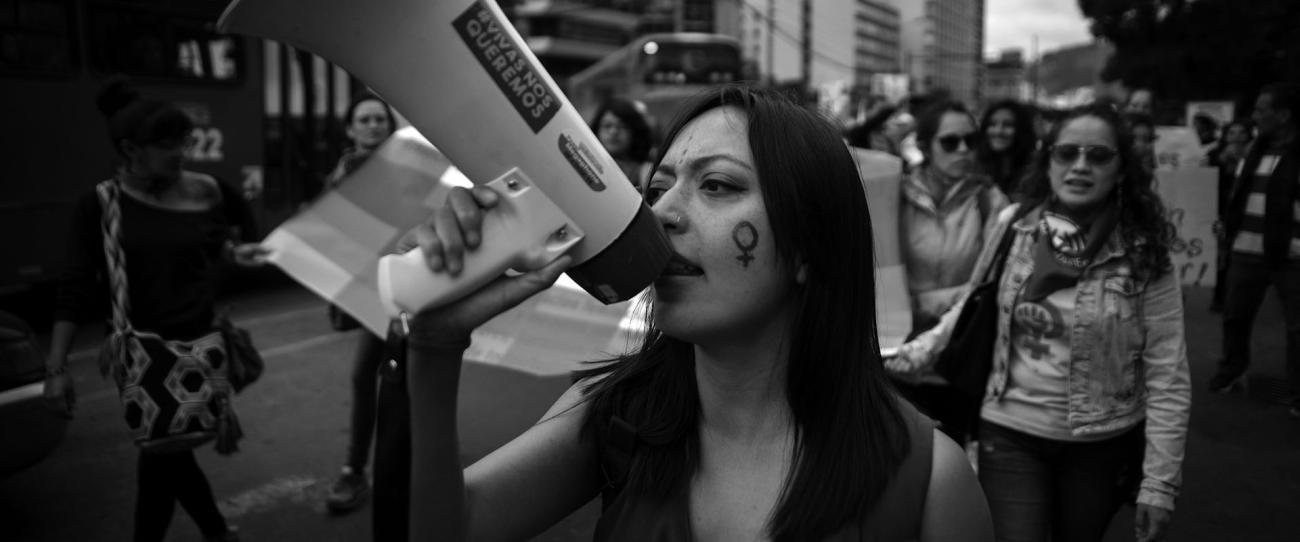Standing Against Gender-Based Violence: RC Voices from the Ground Around the World, Including Indonesia

---
Around the world, almost one in three women experience physical or sexual violence, yet on average less than 0.2 per cent of government aid is directed towards its prevention.
To reverse these trends and eliminate gender-based violence, we need to invest more resources in robust prevention measures, including better legislation, stronger support to women’s organizations and an expansion of services for survivors.
At the country level, our UN Resident Coordinators are on the ground advocating this message and raising their voices in support of the rights of women and girls everywhere.
Speaking ahead of this year’s ‘16 Days of Activism for the Elimination of Violence Against Women’ campaign (25 Nov- 10 Dec) the Resident Coordinators share some of the ways they are pushing for strong action on prevention and why these efforts are so crucial for the achievement of gender-equality and the Sustainable Development Goals.
“Let’s call it what it is: violence against women is shameful and a direct and unquestionable violation of human rights and the dignity of women, and of international treaties and basic ethical principles. Yet, gender-based violence is unfortunately a fact of life for one in three women, or more than one billion women around the world. In Indonesia, we work with the government and civil society organizations to support and promote women’s rights and full gender equality, for a world free of gender-based violence.”
Valerie Julliand, UN Resident Coordinator in Indonesia
"In Moldova it is critical that we keep supporting the Government to create a life free from violence for every woman and girl. Promoting the establishment of the first National Agency on Gender-based Violence in the region, coupled with policy development, implementation of action plans, and enacting legislation- these are just some of ways we are standing with Moldova in its path towards the elimination of violence against women and girls. To address the needs of all those affected, it’s important that we keep pushing for survivor-centered approaches.”
Simon Springett, UN Resident Coordinator in Moldova
“We’re seeing a global recession on this issue which we’ve worked so hard to address. We still don’t have a recognition about the need for gender-equality including the elimination of violence against women. In Costa Rica we’ve seen how women are the targets of hate speech and online digital violence, so we’ve been working really hard to give space to women voices and bring everyone around the table.”
Allegra Baiochhi, UN Resident Coordinator in Costa Rica
"Investing in prevention is a responsibility shared by all, and public/private partnership is a driver to ending all forms of violence against women and girls. In Egypt, the private sector is instrumental in creating safer workplaces allowing women to access economic resources and become less vulnerable to violence; and through their social and public influence, shift the stereotypes that are at the root of all forms of violence against women and girls."
Elena Panova, UN Resident Coordinator in Egypt
"Amid Haiti's deepening crisis, I remain profoundly concerned by the surge in brutal sexual and gender-based violence that not only causes unimaginable suffering and trauma for too many women and girls but also undermines the peace and development dividend. But I also witness the incredible strength, courage and leadership roles of the Haitian women and girls. This power can transform despair into hope and resolve. With the needed national leadership, collective action and political will, solutions can be found to effectively enhance support for survivors and improve police and justice responses to end impunity."
Ulrika Richardson, UN Resident Coordinator in Haiti
“This International Day is a great opportunity to prioritize and invest in the well-being of women and girls. The UN in Georgia has advocated for alignment of legislation and policies with the Istanbul Convention and establishment of fully state-funded support services for the victims of violence. We continue to speak up to help change harmful attitudes and social norms that normalize violence against women and girls.”
Sabine Machl, UN Resident Coordinator in Georgia
“In Timor-Leste, the Spotlight Initiative is the embodiment of how the UN is coming together and building inclusive strategies to address violence against women and girls. To sustain these achievements, we need partnerships which put women and girls at the centre and empower them to engage with their representatives and hold the government to account. Given global trends of gender equality backlash, we need to stay alert and keep dedicating resources to counter any regression.”
Funmi Balogun-Alexander, UN Resident Coordinator in Timor-Leste
“In Kenya, one in three women have experienced gender-based violence at one point in their lives and one in five teenage girls are pregnant. To address this, we’ve come together around a joint prorgramme which is working to strengthen the policy and legislative framework and tackle both prevention and response. This is bringing us much closer to the women and girls affected by gender-based violence, particularly in urban and informal settings and at-risk populations including migrants and refugees."
Stephen Jackson, UN Resident Coordinator in Kenya
This article has been published in the United Nations Development Coordination Office's (DCO) site through this link: Standing against gender-based violence: RC voices from the ground (https://un-dco.org/stories/standing-against-gender-based-violence-rc-voices-ground)









